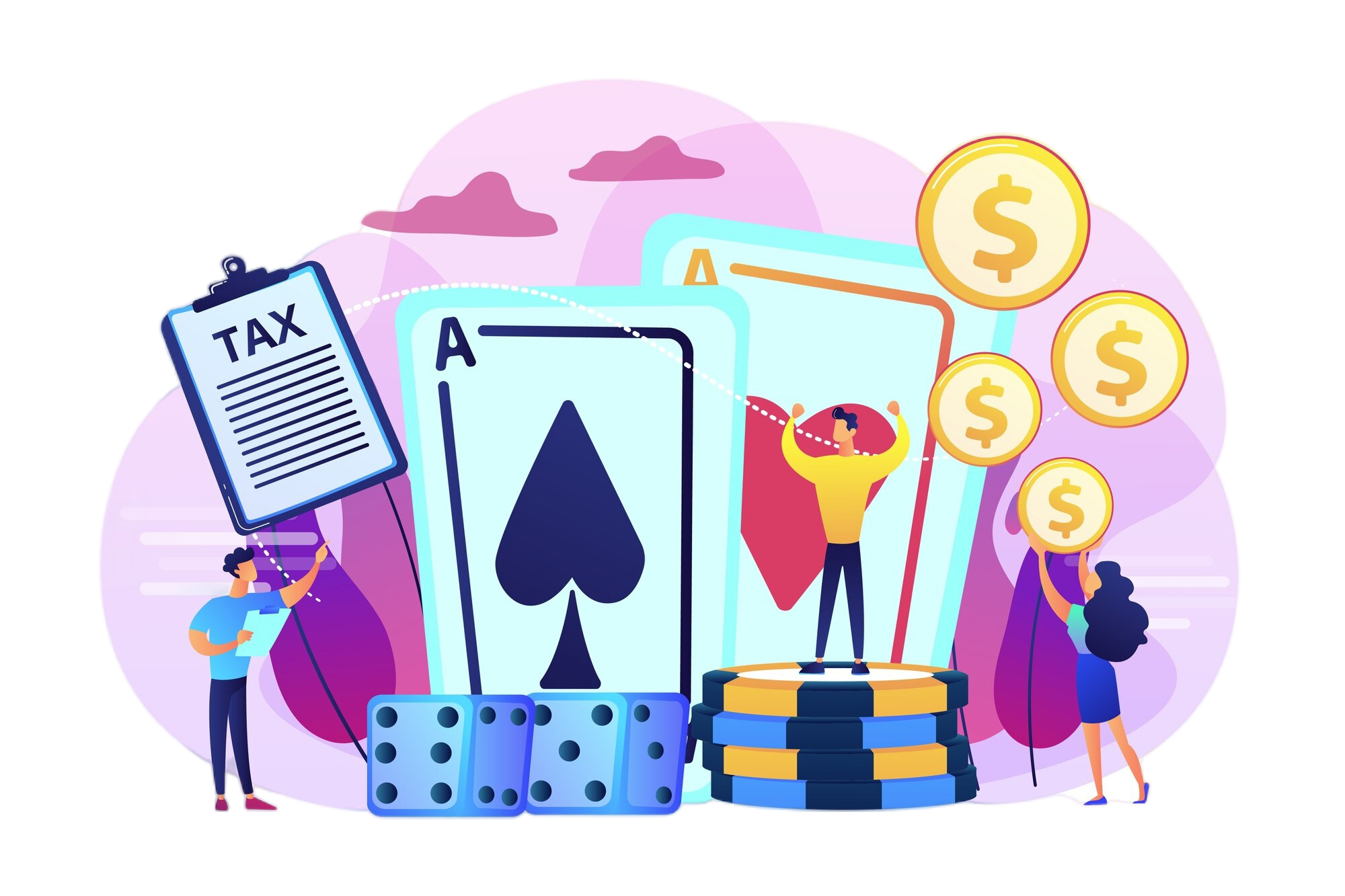1.
Do you spend more time and money on gambling than you plan?
Understanding gambling addiction is crucial for responsible gambling. Operators and players alike must recognize the signs and take preventive measures, such as setting limits, using self-exclusion tools, and seeking professional help when necessary.
Gambling addiction, also known as compulsive gambling or gambling disorder, is a condition where a person cannot control their urge to gamble, despite negative consequences. It is classified as a behavioral addiction, similar to substance abuse, because it stimulates the brain’s reward system in a way that can lead to dependency.
Problem gambling is a broader term that includes any gambling behavior that disrupts a person’s life. Not all problem gamblers are fully addicted, but they may experience financial difficulties, strained relationships, or emotional distress due to their gambling habits.
Big wins early on – Winning early in one’s gambling experience can create a false belief in long-term profitability.
Accessibility – Online casinos and mobile gambling make it easier to bet anytime, increasing the risk.
Personality traits – Impulsivity and sensation-seeking behavior contribute to problem gambling.
Mental health issues – Depression, anxiety, and substance abuse often co-occur with gambling problems.
Internet resources spread game addiction among people of all ages, including children and teenagers. Loved ones of a gamer need to contact a specialist when they detect the first signs of addiction.
The first symptom of game addiction shows when a person cannot stop or reduce time spent playing, even with physical ailments or the desire to stop. Continuous play for several days has caused deaths in computer clubs due to dehydration or acute circulatory system disorders.
Interest in video games is normal, but in addicted people it turns into an obsession. Identify addiction by these signs:
Feeling anger or frustration after losing is normal, but in addicted people it becomes too intense. After a failed bet, a person with a gambling problem might scream, show aggression, break things, or cry. This shows an excessive emotional attachment to gambling.
The gambler knows he has lost control and tries to hide his addiction from others. Hints about the harm of his hobby cause anger and irritation. The addict lies and manipulates to hide his true motives and actions.
An addicted person tries to “win back” immediately after a loss, gradually increasing the stakes. In this case, he is not guided by logic and any strategy, but acts impulsively.
Gambling addiction can ruin a person’s financial situation. Even someone with a stable income can end up homeless and destitute. Initially, the addict loses their entire salary. Then they start selling personal belongings. In the end, they can lose everything – house, business, car, furniture – accumulating huge debts and facing increasing financial problems.
The ludomaniac starts with small amounts, but gradually increases the size of bets to achieve the desired level of excitement. For this reason, over time he faces great financial difficulties.
A person gets so drawn into the game that they forget about studies, work, relationships, friends, hobbies, and pastimes. They stop thinking about the future and focus only on planning game strategies.
The gamer experiences constant “emotional swings,” which strain their nervous system. Over time, loved ones notice changes in behavior:
This issue affects both children and adults. The gamer skips meals to keep playing, ignores hygiene rules, and doesn’t comb hair or wash clothes. Insomnia, weight loss, or rapid weight gain (due to inactivity and quick junk food snacks at the computer) occur.
These measures are fundamental to protecting not only individuals, but also their families and communities.
Informing the population about the risks and consequences of excessive gambling is essential. Talks in schools and communities, the distribution of information materials and the inclusion of information about the risks of gambling in advertisements are all effective measures.
It is important to demystify the idea that gambling is an easy way to make money. Showing real cases of people who have faced difficulties due to addiction can help raise awareness of the dangers involved.
Support centers and helplines should be available to provide immediate assistance. Treatment for gambling addiction can include individual therapy, support groups and, in more severe cases, rehabilitation programs.
Family members and friends also need guidance on how to deal with the situation. They are often the first to notice the signs of addiction and can play a crucial role in encouraging the individual to seek help.

Gaming companies should be regulated to ensure that they promote responsible gambling. This can include implementing limits on the amount of time and money a player can spend. Self-exclusion systems, where players can voluntarily block themselves from participating in gambling, are also important.
Online platforms should use algorithms to identify problem gambling behavior and intervene when necessary. Alert messages and reminders about time spent gambling can help players stay in control. Campaigns to promote the use of limitation tools should be constant.

Gaming establishments and online platforms should implement strict age checks to ensure that minors do not have access to gambling.
Schools and families have a key role to play in educating young people about the dangers of gambling. Open and honest conversations about the risks and reality of gambling can prevent the curiosity that leads to early involvement. Parents should be alert to signs of interest in gambling and take preventative measures to prevent access.
Friends and family face cold or aggressive behavior, lack of attention, financial issues, and other problems. Attempts to help often lead to arguments or aggression, making loved ones unsure if they should intervene. Do not assume the addiction will disappear on its own. Overcoming addiction requires hard work, and the support of loved ones often proves invaluable.
Before helping someone, understand that wrong actions can worsen the relationship without achieving results. Here are actions loved ones often take in good faith that do not bring results.
Help your loved one realize the problem gently. Guide them to reach the right conclusion on their own. Use a trusting conversation in a calm setting. Ask rhetorical questions that encourage reflection. When the person realizes time, money, and resources go nowhere and they lack self-control, they take the first step toward recovery.
Find the cause of the problem. Easy money often attracts those with childhood psychological traumas or failures in work or relationships. When a person feels confident in these areas, they feel less need for self-assertion in gambling.
Help create a plan of action. If the person acknowledges their problem, they might need help organizing themselves. If they agree to cooperate, suggest these steps:
Be present and show understanding. A person with addiction might not always be a pleasant conversation partner or neighbor. However, when close ones do not turn away, it helps the person build confidence. The chance to talk frankly also helps the person cope with emotional tension.
Find an engaging way to spend time. Try a sport, fishing, board games (without gambling or betting), or simply going for walks. Show the person that time spent on other activities can be just as exciting and more beneficial for the mind and body.
Stay persistent. Treating gambling addiction takes a long and laborious effort. Expect setbacks, possibly even prolonged ones. However, don’t abandon the person struggling and don’t let them give up. Offer encouragement, support, and praise for their successes. Motivation plays a crucial role in recovery.
Self-assessment tools exist to help you understand your gambling habits. These tools ask questions about your gambling behavior, frequency, and impact on your life. You should answer honestly to get accurate results. Here are a few questions to consider:
Do you spend more time and money on gambling than you plan?
Do you feel restless or irritable when you try to cut down or stop gambling?
Do you gamble to escape problems or relieve stress?
Do you chase losses by gambling more to recover lost money?
Do you lie to family or friends about your gambling?
Do you jeopardize relationships, work, or educational opportunities because of gambling?
Do you borrow money or sell items to finance your gambling?
If you answer yes to several of these questions, you might have a gambling problem.
If self-assessment results indicate a gambling problem, consider seeing a doctor or mental health professional. You should also seek help if you experience any of the following:
Mental health professionals, such as psychologists, psychiatrists, or counselors, specialize in treating gambling addiction. They use various approaches to help you manage and overcome your addiction:
Besides professional help, self-help groups like Gamblers Anonymous offer support and guidance. These groups follow a 12-step program and provide a network of people who understand the challenges of gambling addiction. Attending regular meetings and engaging with the community helps reinforce your commitment to recovery.
Preventing gambling addiction requires a concerted effort to raise awareness, provide adequate support, impose restrictions and strictly control access to minors. By educating the population, offering assistance and implementing control measures, we can significantly reduce the negative impact of gambling on society. It is crucial that everyone involved – from authorities to families – works together to create a safe and healthy environment for everyone.
recognizing and addressing gambling addiction early makes a significant difference in recovery. Self-assessment tools help identify potential gambling problems. Seeking professional help when you experience an inability to control gambling, financial problems, emotional distress, relationship issues, or compulsive behavior proves crucial. Mental health professionals use various approaches such as cognitive-behavioral therapy, motivational interviewing, group therapy, family therapy, and medication to treat gambling addiction. Self-help groups like Gamblers Anonymous provide additional support and a sense of community. Taking these steps helps you regain control over your life and overcome gambling addiction.
Companies need to provide clear information about the risks associated with gambling. Operators must offer tools for self-exclusion and time limits to help users manage their gambling behavior. They should also train employees to recognize signs of gambling problems and direct affected individuals to appropriate support services.
Slot machines, online gambling, and sports betting rank high in causing problem gambling. These types of gambling often involve fast-paced play, immediate results, and opportunities to place frequent bets. This leads to increased risk of addiction. People who engage in these activities face a higher likelihood of developing a gambling problem compared to those who participate in activities like lottery games or bingo, which involve slower play and less frequent betting opportunities.
Depression, anxiety, and substance use disorders occur frequently among those with gambling problems. People with gambling addiction may use gambling as a way to cope with their emotional distress, leading to a cycle of worsening mental health and increased gambling behavior.
Men tend to develop gambling problems at a younger age and often engage in strategic or skill-based gambling activities, such as poker or sports betting. Women often develop gambling problems later in life and tend to prefer non-strategic forms of gambling, such as slot machines or bingo. The prevalence of gambling addiction is higher among men compared to women. However, women with gambling problems often experience a more rapid progression from initial gambling to addiction, known as telescoping.
Cognitive-behavioral therapy (CBT) focuses on changing the thoughts and behaviors that contribute to gambling problems. CBT helps individuals develop healthier coping mechanisms and problem-solving skills. Motivational interviewing encourages individuals to find their motivation to change their gambling behavior and set achievable goals. Group therapy provides peer support and helps individuals share experiences and strategies for recovery.
Medication may also help treat co-occurring conditions like depression or anxiety, which can exacerbate gambling problems. Self-help programs, such as Gamblers Anonymous, offer peer support and a structured recovery program. Family therapy helps address the impact of gambling addiction on loved ones and strengthens family support systems.